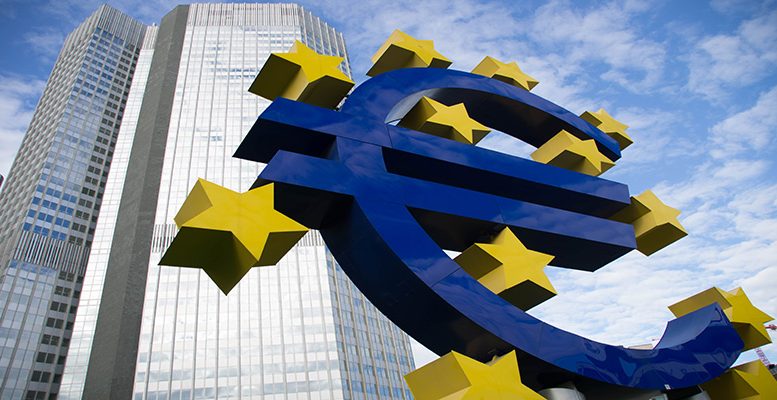*This article was originally published by Fair Observer.
Athanasios Dimadis | During the World Economic Forum in Davos, the managing director of the International Monetary Fund (IMF), Christine Lagarde, stressed the importance for all eurozone countries — Greece first and foremost — to implement reforms that will bring back the prospect of sustainable growth, with lower rates of unemployment and higher competitiveness for European economies. Since the realization that Greece could default on its debt launched the eurozone into crisis in 2009, EU economy remains fragile.
Although the austerity measures imposed on indebted eurozone countries such as Greece (which received a record $147 billion bailout from the EU and the IMF in 2010, followed by a further $160 billion in 2012), Spain, Italy, Portugal and Ireland over the last eight years were necessary for financial stability, investors and markets showed signs of trepidation about the long-term impact these measures will have on economic growth. Greece needs growth to repay the loans, but the country’s public debt has surged to 180% of its economy, and growth forecasts have been lower than initially estimated. According to some projections, EU economic growth is expected to slow from 2.4% in 2017 to 2.1% in 2018, with external economic factors anticipated to further negatively impact the currency union.
After nearly a decade of economic and political turmoil, Europe is still struggling to regain stability. This is not simply a result of austerity measures, which proved to be detrimental to both the social and political cohesion of the European Union. The eurozone economy has been established in a context where political leaders in each member state promote national agendas, often neglecting their obligations to the union. After eight years of recession, the primary question about Europe’s future remains unanswered: Will the eurozone ever be able to flourish without external support? Perhaps more relevant still is the question whether the EU is prepared to operate more like a federation and less like a group of individual states with different visions and conflicting priorities. Given the current state of affairs, this seems unlikely.
I remember the conversation I had a couple of years ago with one of the top IMF executives who expressed the view that when the fund started working with Europe on the initial bailout plans for Greece, the IMF and the Europeans seemed to be on a different page. Although Greece has for many years been at the forefront of many battles between Europe and the IMF concerning, for example, the level of debt relief following Greece’s 2010 economic meltdown, there have been other, more significant points of disagreement. Since the beginning of the crisis, Jean-Claude Trichet at the European Central Bank (ECB), José Manuel Barroso at the European Commission (EC) and the German Finance Minister Wolfgang Schäuble seemed unwilling to resolve immediate problems, preferring to postpone until the point where some issues have become unmanageable.
For example, who can forget when back in 2010 the three major players in the European decision-making process — the ECB, the EC and Germany — persistently rejected any discussion for possible debt relief for Greece while the IMF warned that this will be inevitable. With almost two years of delay, reality forced the European negotiators to finally adopt the IMF’s position according to which part of the unmanageable Greek debt was to be written off. But the crisis has in the meantime burgeoned not just in Greece but throughout the entire eurozone.
In January 2018, the IMF published a report of its projections for the eurozone economy. The IMF cuts eurozone’s growth projections to 2.2% this year and to just 2.0% for 2019, down from 2.4% in 2017. Concurrently, the eurozone is still facing risks of political instability in countries such as Greece, Italy and Spain where national governments are confronting continued opposition to austerity measures, high unemployment rates and lack of economic prosperity. According to Bert Colijn, an economist at the ING, political risks in the eurozone such the protracted German coalition talks and Italy’s upcoming elections could have a significant impact on the economic outlook. Analysts also pose the question whether Emmanuel Macron’s victory in France will be enough to mitigate political risk across the EU.
Economists from New York-based financial institutions expect the eurozone to step onto a safe path of lesser economic and political turmoil. However, there is one crucial omission in these estimations. Over the last eight years, the eurozone has missed the opportunity to implement reforms such as creation of a banking union that could build resilience to future crises. This is despite the fact that Europe had the US by its side, with President Barack Obama standing by Europe when the eurozone was facing the possibility of an unprecedented breakdown. The former US president has been credited with helping to save the euro after advising the European leaders on how to handle the debt crisis and avoiding the disastrous accident of a potential “Grexit.”
President Donald Trump’s position on Europe is diametrically opposite: The more Obama was trying to keep Europe united, the less Trump cares about what Europe’s future is. Trump’s alleged pick for ambassador to the EU put a question mark over the viability of the euro, in a manner similar to President Trump having “cheered Britain’s exit from the European Union.”
With the US taking an increasingly protectionist and antagonistic turn away from its partners in Europe, the Europeans do not have many options anymore. Europe’s leaders have to make tough decisions, including potentially shrinking the union by expelling those members who do not comply with the rules. Otherwise, the reforms that Christine Lagarde is calling for will end up becoming a call for action to avoid the eurozone veering on the edge of collapse yet again.
*This article was originally published by Fair Observer.
*Photo: Flickr/ Marco Verch





